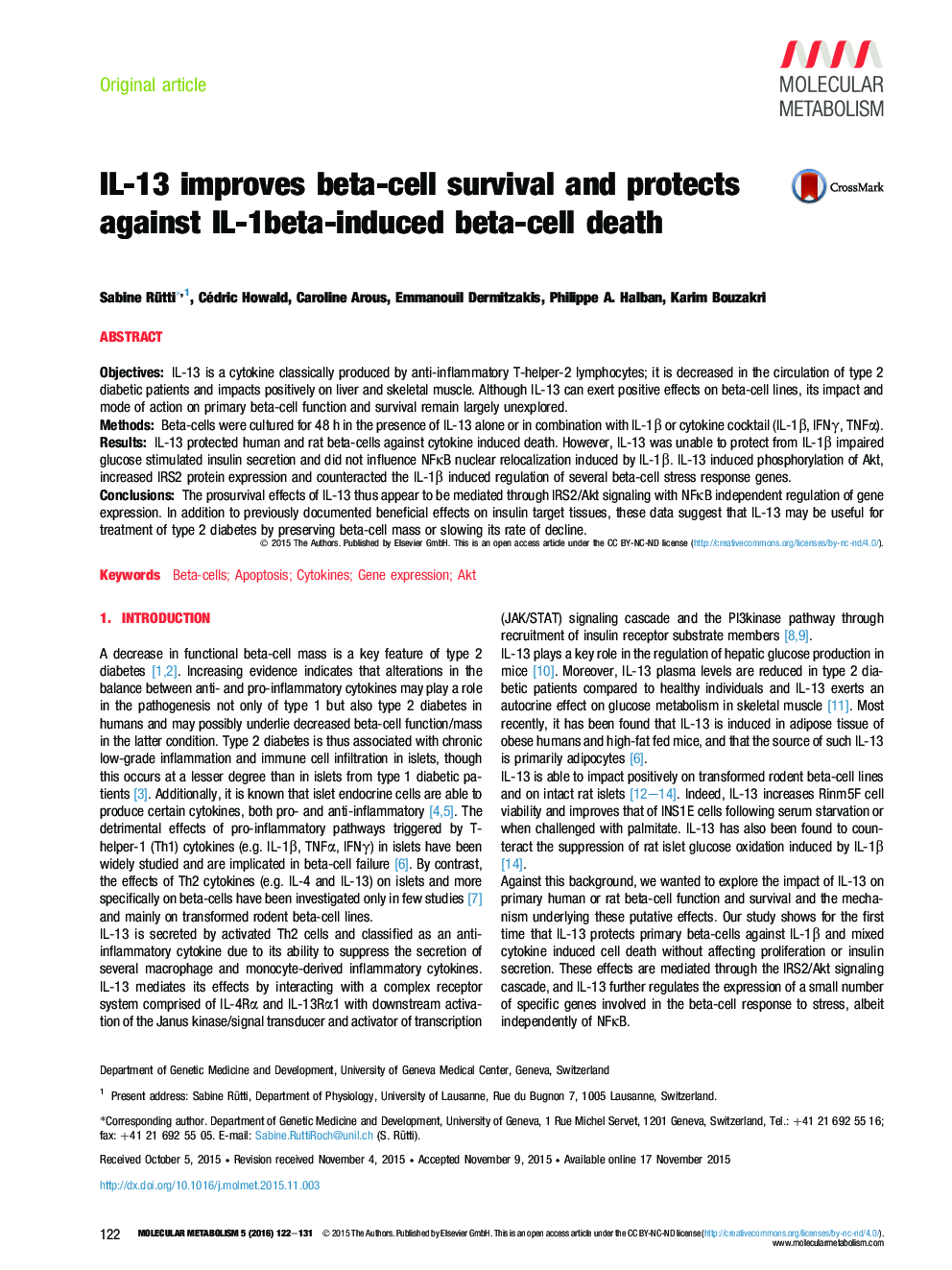| Article ID | Journal | Published Year | Pages | File Type |
|---|---|---|---|---|
| 3001293 | Molecular Metabolism | 2016 | 10 Pages |
•IL-13 decreases human beta-cells apoptosis.•IL-13 protects primary beta-cells form cytokine induced apoptosis.•The IRS2/akt pathway mediates IL-13 protective effects.•IL-13 modulates the expression of genes involved in stress response.
ObjectivesIL-13 is a cytokine classically produced by anti-inflammatory T-helper-2 lymphocytes; it is decreased in the circulation of type 2 diabetic patients and impacts positively on liver and skeletal muscle. Although IL-13 can exert positive effects on beta-cell lines, its impact and mode of action on primary beta-cell function and survival remain largely unexplored.MethodsBeta-cells were cultured for 48 h in the presence of IL-13 alone or in combination with IL-1β or cytokine cocktail (IL-1β, IFNγ, TNFα).ResultsIL-13 protected human and rat beta-cells against cytokine induced death. However, IL-13 was unable to protect from IL-1β impaired glucose stimulated insulin secretion and did not influence NFκB nuclear relocalization induced by IL-1β. IL-13 induced phosphorylation of Akt, increased IRS2 protein expression and counteracted the IL-1β induced regulation of several beta-cell stress response genes.ConclusionsThe prosurvival effects of IL-13 thus appear to be mediated through IRS2/Akt signaling with NFκB independent regulation of gene expression. In addition to previously documented beneficial effects on insulin target tissues, these data suggest that IL-13 may be useful for treatment of type 2 diabetes by preserving beta-cell mass or slowing its rate of decline.
